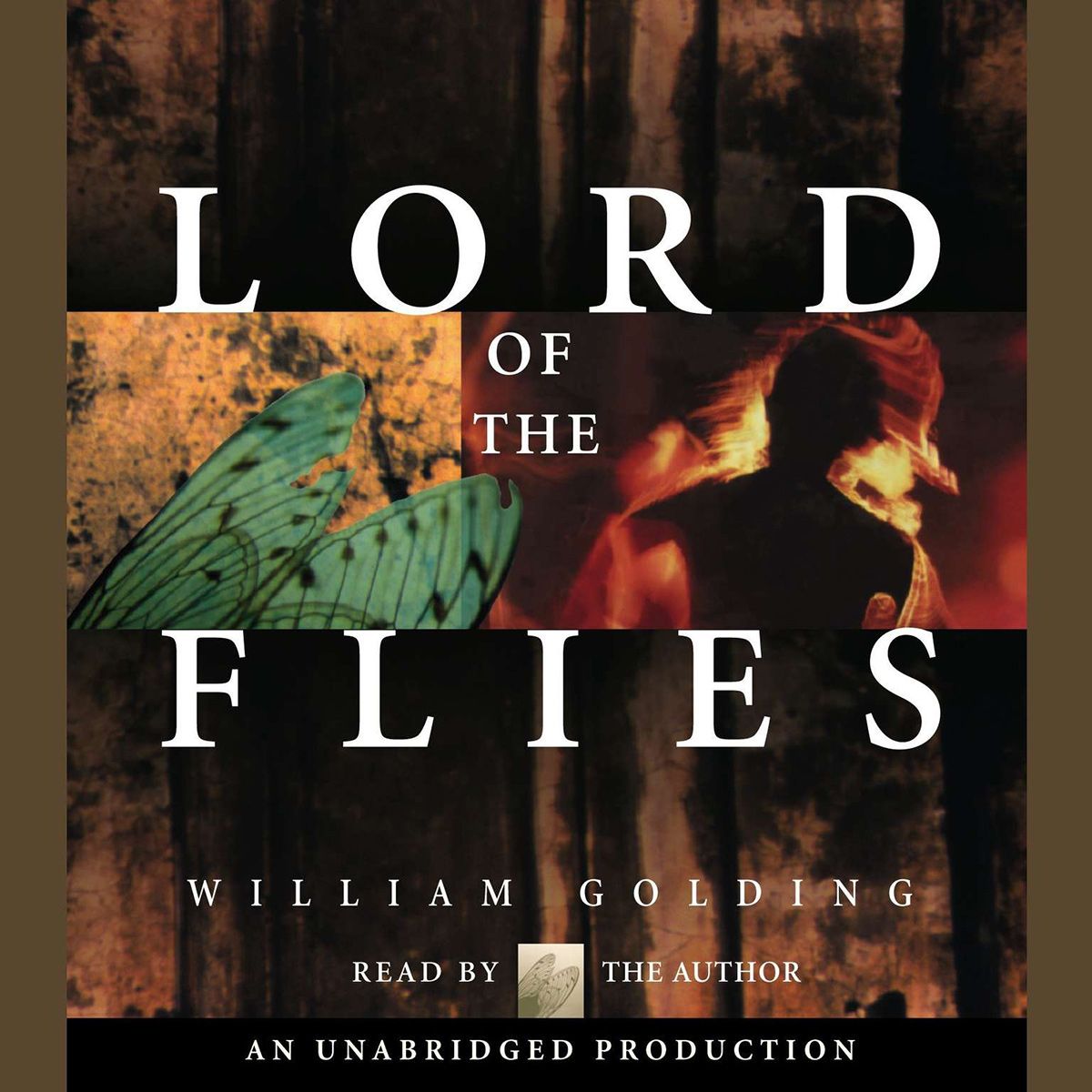
Lord of the Flies by William Golding
I read this novel in high school and later in college, as many kids did. It's considered a classic for good reason. It's a well-crafted allegory with beautifully descriptive passages. But would I get much out of rereading a novel for a third time as a well-read, literary-critical adult? It turns out, I did. For this review, I listened to the audiobook version as read by the author, William Golding, which I will discuss at the end of this review.
Before reading this novel again, I read The Coral Island, the novel William Golding claimed to write Lord of the Flies as a counterpoint to. Both books have the similarly named Jack, Ralph and Peterkin / Piggy main characters, but Lord of the Flies has additional cast members in Simon, Roger, and more. Both books, at their core, are about boys stranded on an island without adults around to take care of them.
The narrator of Lord of the Flies tells the lost boys' story vividly and, at times, poetically, yet keeps an emotional distance from the boys, never eliciting empathy or affection for them or their dilemma. Golding explains before starting his story that these boys represent scaled-down society and, if left to their own devices, would reduce their company to all-out anarchy. This is where Golding's genius lies: creating a premise to contemplate where evil instigates. Golding demonstrates that the disregard of rules and order is what nurtures evil, and it's hard not to disagree with Golding because of the way he structures his story with these three particular fetid protagonists.
Ralph is not an empathetic character, as demonstrated by his disregard of Piggy's feelings throughout the novel, only to have the tiniest bit of remorse for Piggy when it's too late. Jack's self-esteem is so low that he props up his toxic masculinity with bold promises of hunt kills and other threats of violence. Even Piggy's sniveling and hurt feelings are tossed to the side because of his brazen toadiness. It was plain to see from the start of the novel where it was going with these three malcontents leading the stranded children. There was no chance for a positive coexistence on the island without the moral compass of grownups or adults around to steer them right.
But unlike The Coral Island's slow first half of pastoral observations of the island (there were a couple of natural disasters those three boys easily overcame), Golding wasted no time after the first chapter wallowing in detailed observations of nature. He quickly jumped into the meat of his narrative, dissecting the boys interactions with his keen eye, their one-upmanship on full display, their decisions based on hurt feelings and wounded pride. The economy of Golding's storytelling was a marvel and his ability to create some truly beautiful sentences was astounding. By the time the story abruptly stopped, my mind was racing with the possibility of redemption for these terrible boys, these little lords of corruption.
Finally, the narrator for this book--the author himself, William Golding--was excellent. In fact, his narration was one of my favorite parts. He made practically no effort to discern between the boys with character voices or tonal inflections. He read the story straight and let the writing stand for itself. His crotchety, British accent gave his reading a gravelly quality and I quite enjoyed his coarseness as well as his thoughts about the story at the beginning and end of the reading. Golding was a great choice for narrator for this great book.
Buy the paperback on Bookshop: https://bookshop.org/a/152/9780399501487
Listen to the audiobook on Libro.FM: http://libro.fm/referral?isbn=9780807209554&rf_code=lfm85040

